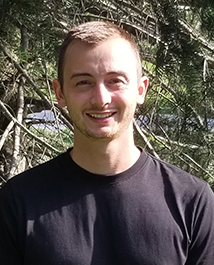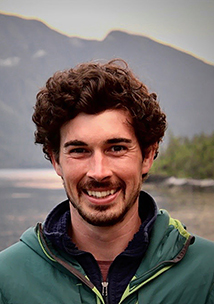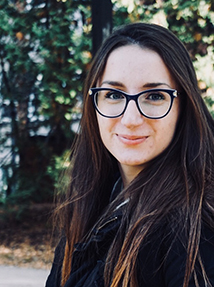Class of 2020â2021
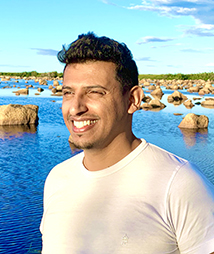 Fadal Al-Ajdaa
Fadal Al-Ajdaa
Fadal is a world traveller, an avid learner and an environmental activist. Fadal's interest in a program that combines his love for the ocean and passion for engineering directed him to enroll in a Marine Engineering Technology program, which gave him both the theoretical knowledge and the hands-on training through work placement training. After graduating from this program and passing his Certificate of Competency (COC) licence exams, he started working as a Marine Engineer Officer sailing onboard LNG carriers, Chemical/Oil tankers and container ships. This work experience gave him a firsthand look at safety issues in the maritime industry and the negative impacts of shipping on the marine environment.
Fadal developed a keen interest in safety, and marine environment protection, which led him to pursue further studies at the Marine Institute of Memorial University of Newfoundland. He graduated from Memorial University with a bachelor's degree in Maritime Studies-Safety Management major.
At ±«Óătv, Fadal is hoping to focus his research on finding solutions to issues affecting the safety and security in the maritime industry and exploring ways to achieve efficient and sustainable shipping while also protecting the marine environment.
James Barclay
James is entering the MMM program with a diverse background of academic and professional experience. Upon graduating from Wilfrid Laurier University with a BSc in Kinesiology, he spent the better part of the following three years in business development positions. Determined to switch career paths and contribute to improving global sustainability, he returned to school and obtained an environmental technician diploma. Originally from Toronto, he frequented Prince Edward Island most summers growing up, which instilled a passion for the ocean. Recently, he broadened this passion by completing his PADI open water diver certification. James is captivated by learning about marine ecosystems and is intrigued by what further conservation measures can be taken in protecting them. Additionally, looking at ways that current aquaculture practices will be affected by climate change and exploring possibilities that would make them more sustainable.
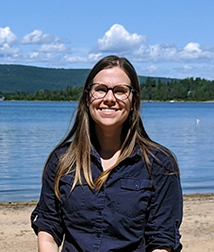 Lisa Baxter
Lisa Baxter
Lisa is a graduate from the University of Toronto with an Honours Bachelor of Science specializing in Molecular Biology. Following her undergraduate degree, Lisa further developed her understanding of Advanced Genetics as a non-degree student at Carleton University. Her passion for marine conservation stems from a family trip to the Great Barrier Reef in 2010. She was stunned years later to see media coverage of a âbleached reefâ that was almost unrecognizable to the reef she had seen in 2010. This experience lead Lisa to enrol in MMM and obtained her PADI Advanced Open Water Certification in the hope that she can help with the innovative research and management of coral reef systems.
Specifically, Lisa is interested in combining her Molecular Biology background with the management techniques she will learn at MMM to study effective strategies for implementing and managing innovative, unconventional conservation methods for coral reef resilience.
Lucas (Luc) Bent
From Ontario, Luc completed his undergraduate degree at Trent University. A keen interest in ocean environments led him to attend an intensive marine semester in St. Andrews, New Brunswick. There he conducted a pilot project for Fisheries and Oceans Canada in conjunction with the University of New Brunswick, looking at the impact of variable pH fluctuations on the development of juvenile American lobster. For his undergraduate thesis, Luc developed new guidelines to be incorporated by COSEWIC in the delineation of designable units using adaptive genetic variation. His last two summers have been spent in British Columbia studying anthropogenic impacts on both southern and northern resident populations of orca with CETUS Conservation and Research Society and Fisheries and Oceans Canada.
His research interests include the conservation gap between researchers and decision makers, species at risk policy and the use of differing knowledge systems that influence marine resource management.
Lisa Ch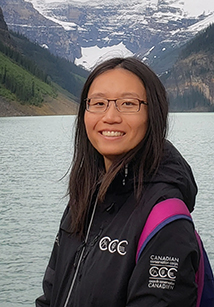 en
en
Lisa is a marine biologist, conservationist, divemaster, educator, and blue entrepreneur who graduated from McGill University with a BSc majored in Biology, minored in Neuroscience, and an independent research project on ecological speciation of Trinidadian guppies. She has worked in Costa Rica for rainforest monitoring and research, Florida for marine animal researches and husbandry, Thailand for coral conservation and research, British Columbia for aquarium and environmental education, and Vietnam for fisheries and tourism. She has also worked as a lecturer and teacher in Canada and China.
Lisa is excited to become a part of the MMM family to gain a better understanding of marine policy and interdisciplinary conflicts. Combined with her diverse experiences, she hopes to develop skills needed to tackle marine litter, create environmental education materials, and develop reef monitoring techniques.
Tianna Clarke
Tianna has a degree from the University of Alberta in honors human physiology and has certification in both biomedical research and interdisciplinary leadership. Between summers of undergraduate research in Edmonton, she sought a challenge in a personally uncharted discipline: marine conservation. After volunteering with a conservation project in Fiji, the surrounding marine enthusiasts had made a lasting impression.
To gain more experience, Tianna trained to become a research assistant with a non-government organization in the Philippines and spent her summer collecting data on a coral reef monitoring project. This work highlighted the effectiveness of marine-protected areas (MPA's) in sustaining the diversity of tropical shallow-waters. Therefore, Tianna aims to further her knowledge of MPA's and make an effort in demonstrating the impact of coastal protection to the public.
Tianna hopes the MMM program will provide her the tools to elevate her experiential knowledge into practical and transferable skills in marine management.
Aar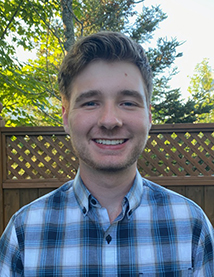 on Cogger
on Cogger
Aaron grew up in Nova Scotia in the town of Antigonish. Between frequent trips to the beach, his encyclopedias, and nature documentaries, Aaronâs interest in all things marine started from a young age. For his undergraduate degree, Aaron studied at St. Francis Xavier University, where he completed a double major in Biology and Aquatic Resources. His research projects during this time were centered on the behaviors of the American lobster. Before arriving to the Marine Management program at ±«Óătv, Aaron participated in a research internship at the Cape Eleuthera Institute in the Bahamas, where he studied green sea turtle conservation and the sustainability of the local spiny lobster fishery. He is very excited to participate in the MMM program for its unique interdisciplinary approach and aims to learn about and mitigate the effects of development on the biodiversity and behaviours of marine life.
Jillian Conrad
Jillian Conrad was born and raised in Nova Scotia and recently completed her Bachelor of Science (Honours) in biology/biotechnology at Queenâs University. During her undergraduate degree, Jillian explored her passion for marine science through her independent research on adaptive food selection across various marine species in Varadero, Cuba. Professionally, serves in the Royal Canadian Navy as a reservist boatswain. Through the military she focuses on reducing marine pollution as the acting Health and Safety Boatswain Department Representative.
Jillian is interested in fisheries policy and management, and is committed to expanding her knowledge in both traditional and modern Indigenous marine conservation practices. Through her Masterâs degree, she hopes to further explore the possibility of federal incentivised collection of ghost gear and marine debris.
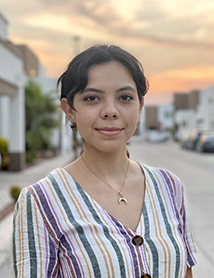 Katia Corral Quijada
Katia Corral Quijada
Katia grew up in Sonora, MĂ©xico. In 2017 she graduated with a B.S. Industrial Engineering with minor in Systems Engineering at Instituto TecnolĂłgico de Estudios Superiores de Monterrey (ITESM).
Even though she was always interested in the ocean, her marine experience started during her volunteer period in the coast of Oaxaca, Mexico. She volunteered in beach clean ups and a sea turtle protection camp raising awareness about the human activity affecting the marine ecosystem, keeping eggs safe during matting season and help with the maintenance of the camp.
Katia is interested in marine ecosystem restoration and chose the MMM program for its interdisciplinary approach, which allows her to use her experience in project management and costs control to bring a different view on restoration projects. She hopes to improve the existing restoration techniques in marine ecosystems and mitigate the negative effects of human activity and climate ch
Victoria Cullen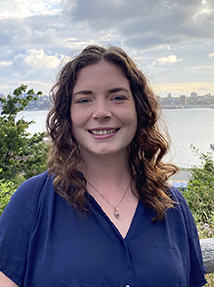
Victoria grew up Dartmouth Nova Scotia, where she developed a passion for the ocean and all of its creatures. She holds a BA (Honours) in Aquatic Resources and Economics from St Francis Xavier University. Her undergraduate research focused on identifying solutions to improve the biological and financial sustainability of the local Bluefin tuna fishery. During her time at StFX, Victoria also had the opportunity to study marine mammals and ecology in Northern Norway, where she solidified her desire to work towards improving the interactions between human activity and nature.
Most recently, Victoria worked with an inshore fisheries organization in the Gulf of NS. Victoria was inspired by the amount of industry led environmental stewardship, and this has inspired her proposed research to improve stakeholder engagement within inshore fisheries management decisions.
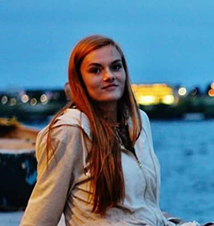 Kaitlyn Curran
Kaitlyn Curran
Kaitlyn has recently completed her Bachelor of Nursing (Honours) at Memorial University, NL. She has since worked as a RN in the emergency department. Although emergency medicine has been extremely rewarding, Kaitlyn could not deny her lifelong desire to work with the ocean.
During her undergrad, Kaitlyn has volunteered with the Sea Turtle Rescue Centre in Greece, Pilpintuwasi Wildlife Sanctuary in Peru and the local Canadian Sea Turtle Network in Nova Scotia. Kaitlyn also assisted Annie Mercier at the Ocean Science Centre in NL, studying sea cucumber immunity- an area where her medical background proved invaluable.
The interdisciplinary nature of the MMM program will allow Kaitlyn to incorporate her social sciences and medical background with her experiences in conservation to produce a holistic approach to marine issues. Kaitlyn is currently interested in marine spatial planning, urban ocean conservation and marine protected areas. Kaitlynâs goal is to work in collaboration with coastal communities to protect marine biodiversity and to ultimately tackle climate change solutions.
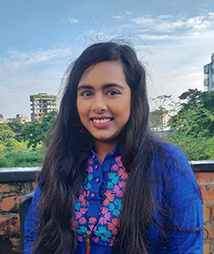 Nidhi D'Costa
Nidhi D'Costa
Nidhi completed her BSc in Environmental Science at North South University, Bangladesh. She has always strived to become versatile from a very young age and this is one of the reasons why she traversed many disciplines (e.g. Industrial Ecology, Forestry and Marine Fisheries) during her undergraduate journey. However, despite her experiences in various research fields, Nidhi became particularly interested in marine conservation and fisheries during one of her undergraduate courses. Over the last two years, she engaged herself with her undergraduate supervisor in different projects on elasmobranch species in Bangladesh, funded by various national and international organizations, namely: Rufford, Zoological Society of London (ZSL), National Geography and Bangladesh Fisheries Research Institute (BFRI). While working as a research assistant, looking at the magnitude of marine resource exploitation in Bangladeshi coastal waters, Nidhi realized that she wanted to become a marine conservation biologist. In regards to her career goal, the MMM program at ±«Óătv University has explicitly intrigued her with its interdisciplinary courses and a wide range of research areas.
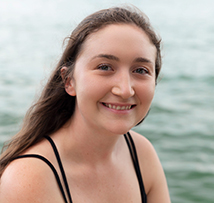 Jaclyn (Jackie) Franceschini
Jaclyn (Jackie) Franceschini
Jaclyn grew up in a small town in southern Ontario. Her family loves to travel so she developed a love for exploration at a young age. She recently graduated from Wilfrid Laurier University with an Honours BSc in Biology, where she focused her thesis on the impacts of road salt on freshwater zooplankton communities. After graduating, Jaclyn spent three months in Greece analyzing patterns of coastal marine debris and studying dolphin behaviour in the Aegean Sea. Upon her arrival back in Canada, Jaclyn joined the River Institute in Cornwall Ontario as a Research Assistant. She, along with the River Rapport team, worked towards producing an Ecosystem Health Report to reflect the health of the Upper St. Lawrence River.
Jaclyn is excited study marine protected areas and coastal marine biodiversity. With the MMM program, Jaclyn hopes to have a better understanding of the management of marine areas and to reduce the impacts of climate change on marine ecosystems.
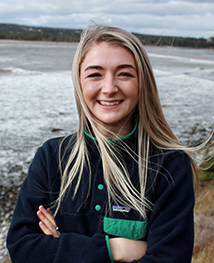 Leah Fulton
Leah Fulton
Growing up in East Lawrencetown, Leah has always been drawn to the salt air and sea. Leah recently completed a Bachelor of Community Design, Honours in Urban Design and Planning at ±«Óătv University, where she also earned an undergraduate certificate in geographic information systems (GIS). In her third year, Leah made use of the opportunity to study regional, remote and rural planning overseas in Perth, Australia. Throughout this experience, she developed a strong interest in economic development in rural coastal communities and began rethinking innovations for sustainable ocean economies.
During her studies, Leah worked as a research assistant at ±«Óătv and gained work experience with industry professionals to develop an interdisciplinary approach to urban and environmental planning. In the MMM program, Leah hopes to integrate her interests in social justice, GIS, and coastal economies to apply research and seek options with intent to implement policy around ghost fishing gear that afflict harvesting, biological habitats, and ocean sustainability.
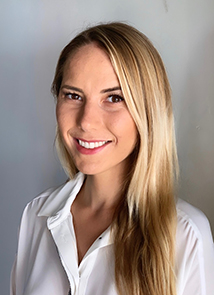 Francheska Krysiak
Francheska Krysiak
Francheska is an avid diver, photographer & lover of all things ocean. It began at a young age from watching documentaries with her mother & a grade 3 science project on Tursiops truncatus. In 2016, she graduated from ±«Óătv with a BSc (Honours), majoring in Marine Biology with a minor in Earth Sciences. During a course at the Bermuda Institute of Ocean Sciences, she was fascinated by her introduction to research diving to gather data & assess reef ecosystems. While working on her thesis, she enjoyed performing statistical analyses to determine the interacting effects of anthropogenic stressors on Atlantic Canadian seagrass beds. After graduating, she developed her diving skills and is currently a Master Scuba Diver instructor (PADI), a Tec diver & Gas Blender, with over 3000 dives. She hopes to integrate her knowledge regarding scuba-diving with her interest in ecosystem based management to study coastal communities in developing regions.Â
 Shuyi Li
Shuyi Li
Shuyi is from China and completed a BSc in Marine Biotechnology (Honours) at Xiamen University Malaysia, an overseas branch campus of Xiamen University, which is one of the best universities in China for the study of ocean science. During her university life, she had opportunities to visit and study coastal zones of both Malaysia and China. Her deep love towards coastal area was developed by seeing those beautiful views. Through the course Integrated Coastal Zone Management, she was heartbroken that many coastal areas were facing challenges like climate change. This led her to further her study on coastal zone conservation and restoration.
Shuyi is eager to study stakeholdersâ perception on coastal zone restoration, and restoration policies and projects. Sheâs also very interested in developing coastal zone management plans based on public perception. She intends to explore integrated coastal zone management in the MMM program.
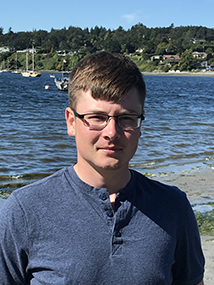 David Marrack
David Marrack
From Victoria, David has always had an interest in the maritime world, be that the tidal pools on Vancouver Island, cargo vessels sailing to Vancouver, or storms on Lake Superior, where he spent much of his childhood. Turning this fascination into a career, he joined the Royal Canadian Navy in 2015, while attending Bishopâs University. Davidâs naval training involved marine law, oceanography and meteorology, as well as more advanced study in seamanship, navigation and marine trade.
Following completion of a BA(Honours) in International Relations, David sailed aboard Maritime Coastal Defence Vessels for 18 months, during which time he operated in support of Canadian Coast Guard Search and Rescue operations.Â
Looking to further expand his knowledge of the marine sphere, especially the issues of Canadaâs development of the Arctic, David is excited to be a part of the MMM Program, where he hopes to combine experience with theory.
Martin Ostrega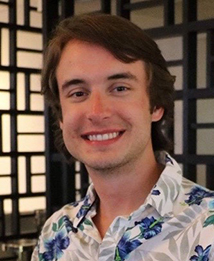
Martin recently completed his BA (Honours) in Environmental Studies at Wilfrid Laurier University. His desire to learn about fish behavior led him to complete an Honours thesis that examined the characteristics and spatial distribution of spawning habitat for three migratory salmonid species in a Lake Huron tributary.
As an avid fly fisherman, Martin has witnessed how anthropogenic disturbances can alter aquatic ecosystems. This has pushed him to fight for the conservation of fisheries. He worked for an angling club as a research assistant and habitat enhancer. His work involved increasing the survival potential for juvenile salmonid and ensuring that spawning grounds for migrating fish was abundant.
Through the MMM program, Martin is eager to build his knowledge of fisheries management and marine conservation. He hopes to center his research around examining opportunities in the Caribbean to incorporate aggregation and spawning sites into a protected area framework. Martinâs goal is to connect science and policy to protect vital fisheries.
Emm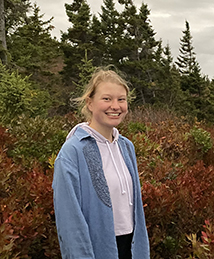 a Snowdon
a Snowdon
Emma grew up in a small town in New Brunswick and spent a majority of her childhood summers along the coasts of Cape Breton. After her second year in university, she spent her summer working in Grand Ătang, Cape Breton, engaging with the public about the species that occupy the local shorelines, while also completing field work with the invasive green crab: Carcinus maenas. She recently completed her BSc in Biology at Mount Allison University, where she had the opportunity to study vegetative cell enlargement in the polar centric diatom: Biddulphia tridens.
Emma is interested in invasive species, with particular interest in the species Carcinus maenas. With a majority biology background, she is excited for the interdisciplinary nature of the MMM program and hopes to gain a better understanding on the current management practices implemented in Canada to mitigate the effects invasive species pose on our oceans.
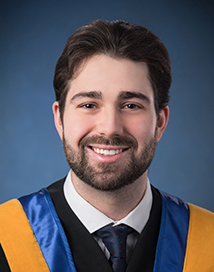 Stephen Tiller
Stephen Tiller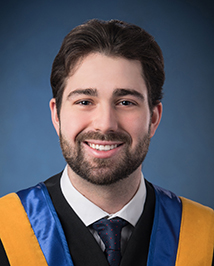
Stephen was born and raised in coastal St. Johnâs, Newfoundland & Labrador, giving him a passion and interest for the ocean and marine industry since a young age. He recently attended and graduated from St. Francis Xavier University with a double major in Aquatic Resources and Public Policy & Social Research (PPSR), as part of the Aquatic Resources program. Much of his undergraduate research focused on sustainable management and enforcement of increasing vessel traffic within Arctic regions of Canada, with emphasis on upcoming and proposed Marine Protected Areas.
Through the MMM program, Stephen is ambitious to focus on his interests in the marine transportation industry (particularly in increasingly popular shipping regions). Furthermore, he has a passion for sustainable yet efficient extraction of both living and non-living resources, and how to partake in these business operations in an environmentally conscious manner. Stephen recognizes the marine field to be continuously thriving industry in upcoming decades, and is excited to bring relevant skills to the table in the MMM program and future career(s).

